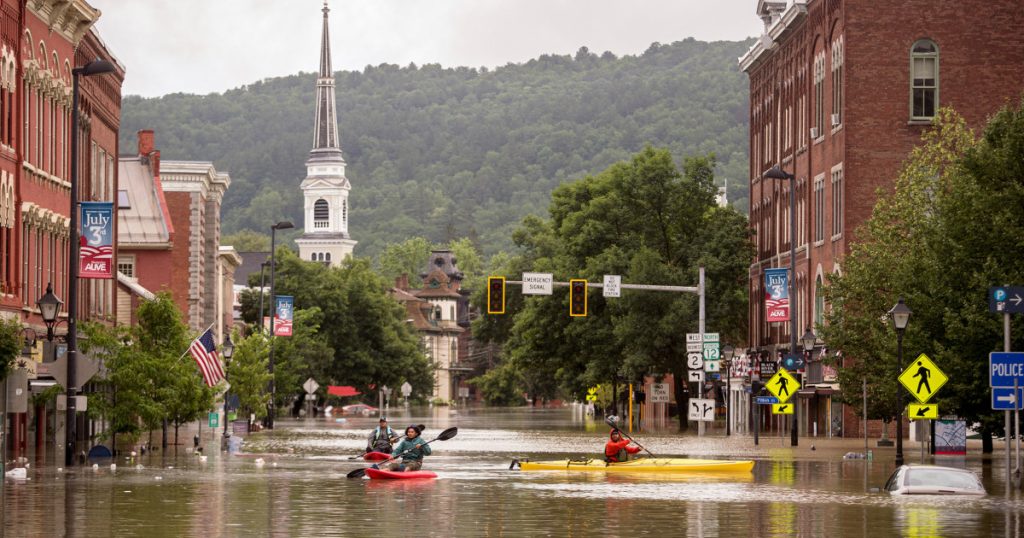Vermont has passed a groundbreaking new law, known as the “Climate Superfund Act,” which requires fossil fuel companies to contribute to the costs of weather disasters influenced by climate change. The bill was signed into law by Republican Governor Phil Scott after passing in the state Legislature with the support of Democratic lawmakers. The law is modeled after the Environmental Protection Agency’s superfund program, which holds responsible companies accountable for environmental contamination. Big oil companies and other high emitters will be required to pay for the costs of recovering from extreme weather events caused by climate change based on their contributions to carbon dioxide emissions from 2000 to 2019.
The decision to implement this new law was met with mixed reactions in Vermont. Governor Scott expressed concerns about the potential legal and financial implications of challenging “Big Oil.” However, supporters of the law see it as a significant step towards holding polluters accountable for the damages caused by climate change. The passage of the Climate Superfund Act marks a shift in the responsibility for the costs of climate change recovery, moving away from solely burdening taxpayers to also include the corporations responsible for the damage they have caused. Funds collected from fossil fuel companies will be used to upgrade infrastructure, weatherproof buildings, and address public health issues related to climate change in Vermont.
Despite its passage, the new law is expected to face legal challenges as companies push back against the punitive fees imposed on them. The American Petroleum Institute, a major lobby for the oil and natural gas industries, criticized the bill as a threat to America’s energy advantage and economic security. Similar policies are being considered in states like Massachusetts, Maryland, and New York, as more jurisdictions are compelled to find financial resources to cover the costs of climate-related disasters. Legal experts view Vermont’s law as a potential model for structuring resilient climate superfund laws in other states, based on the experiences and challenges faced during its implementation.
The impact of climate change on communities across Vermont is a driving force behind the state’s decision to hold fossil fuel companies accountable for their contributions to global warming. Individuals like Ethan Poploski, whose family home was destroyed by a landslide in 2023, have experienced firsthand the devastating consequences of extreme weather events. The Climate Superfund Act aims to shift the financial responsibility from taxpayers to corporations and ensure that those responsible for climate change-related damages are held liable for the costs of recovery and preparation moving forward.
The process of determining the exact amounts that companies owe and allocating funds for climate change-related initiatives will be overseen by state government agencies by 2027. Past superfund cases have proven to be lengthy, complex, and expensive, setting the stage for potential legal battles over the implementation of Vermont’s new law. Despite challenges from industry groups and the potential for legal disputes, the passage of the Climate Superfund Act represents a significant acknowledgment of the need for corporate accountability in addressing the impacts of climate change on local communities and infrastructure.


